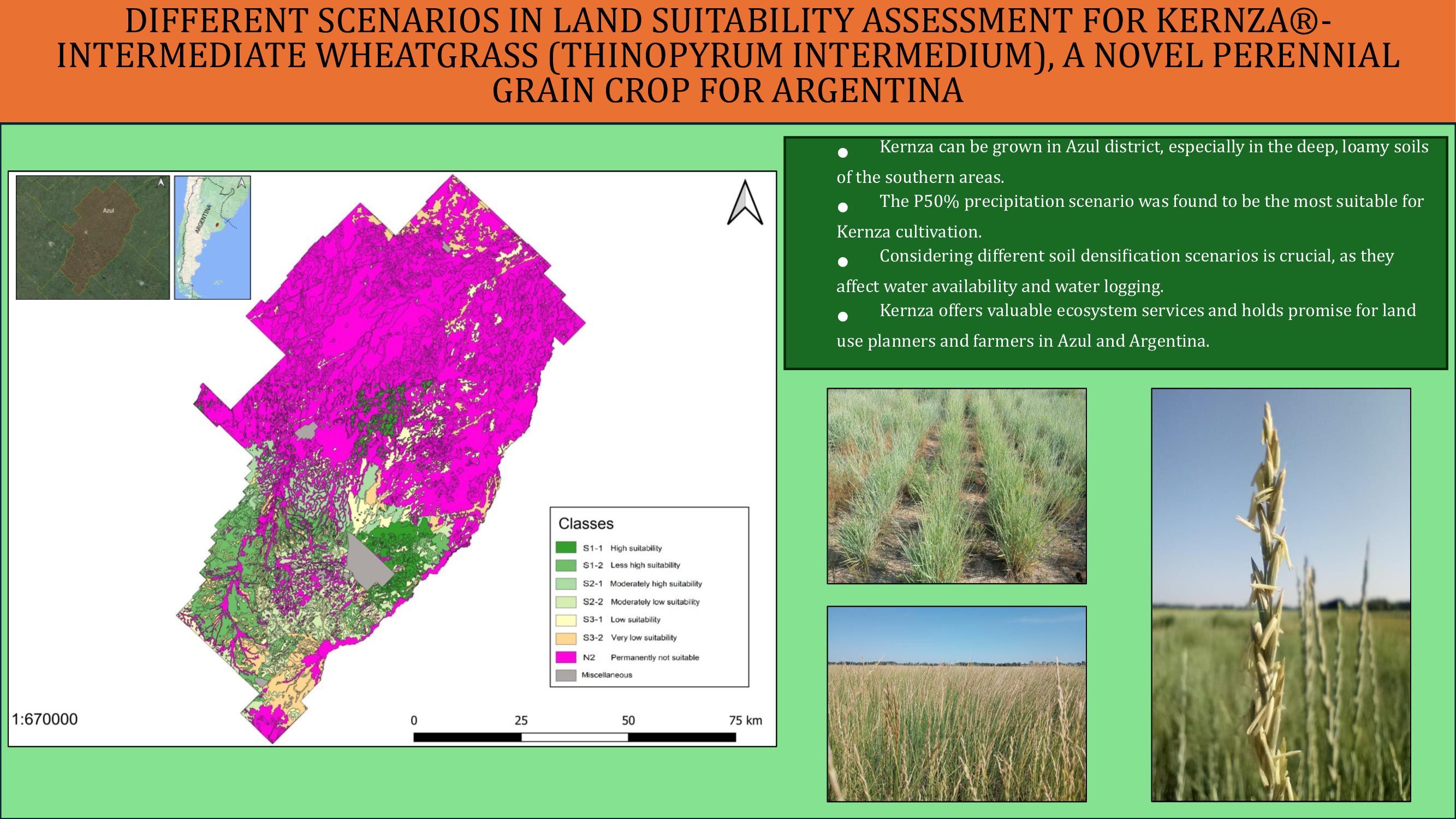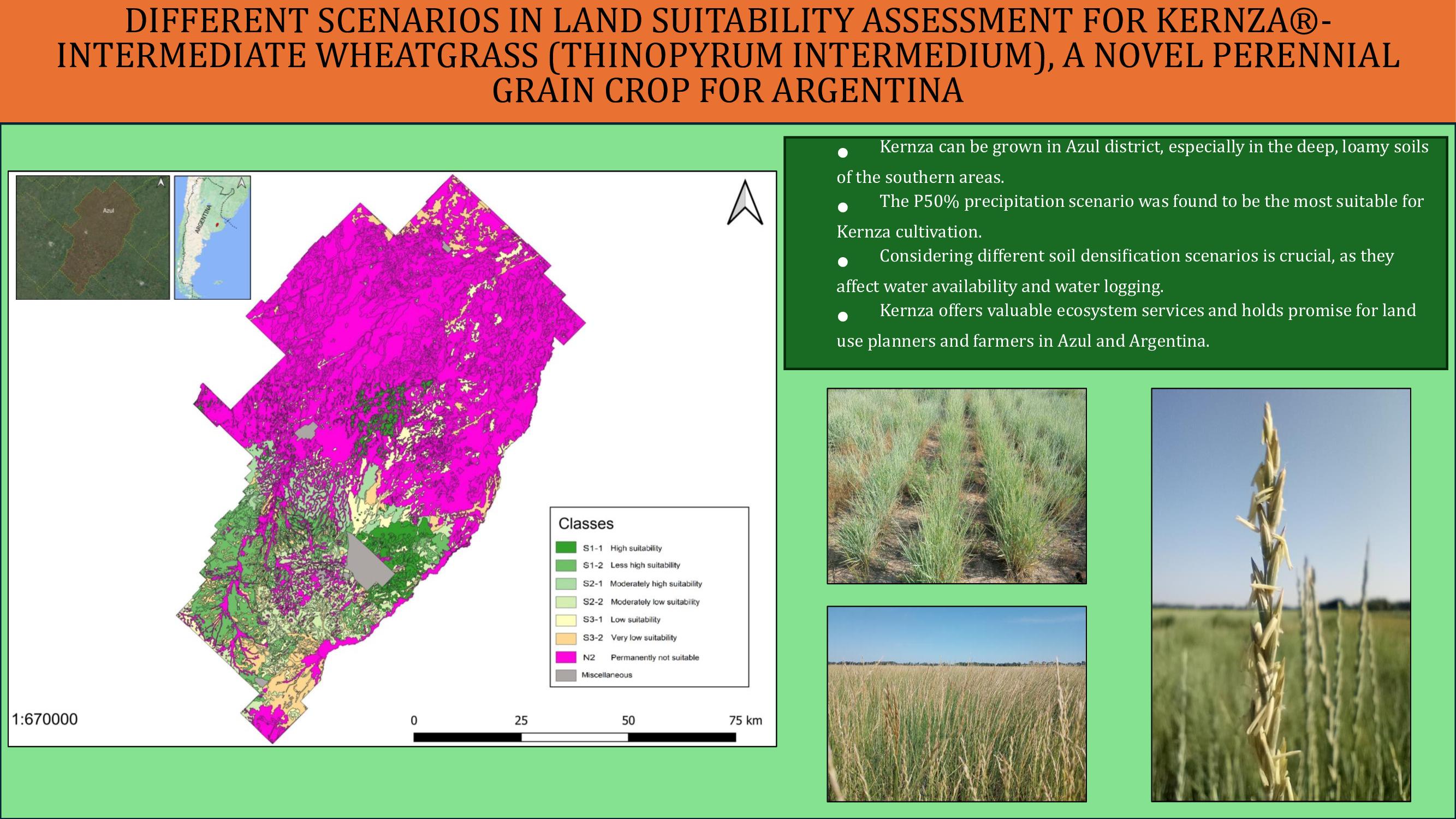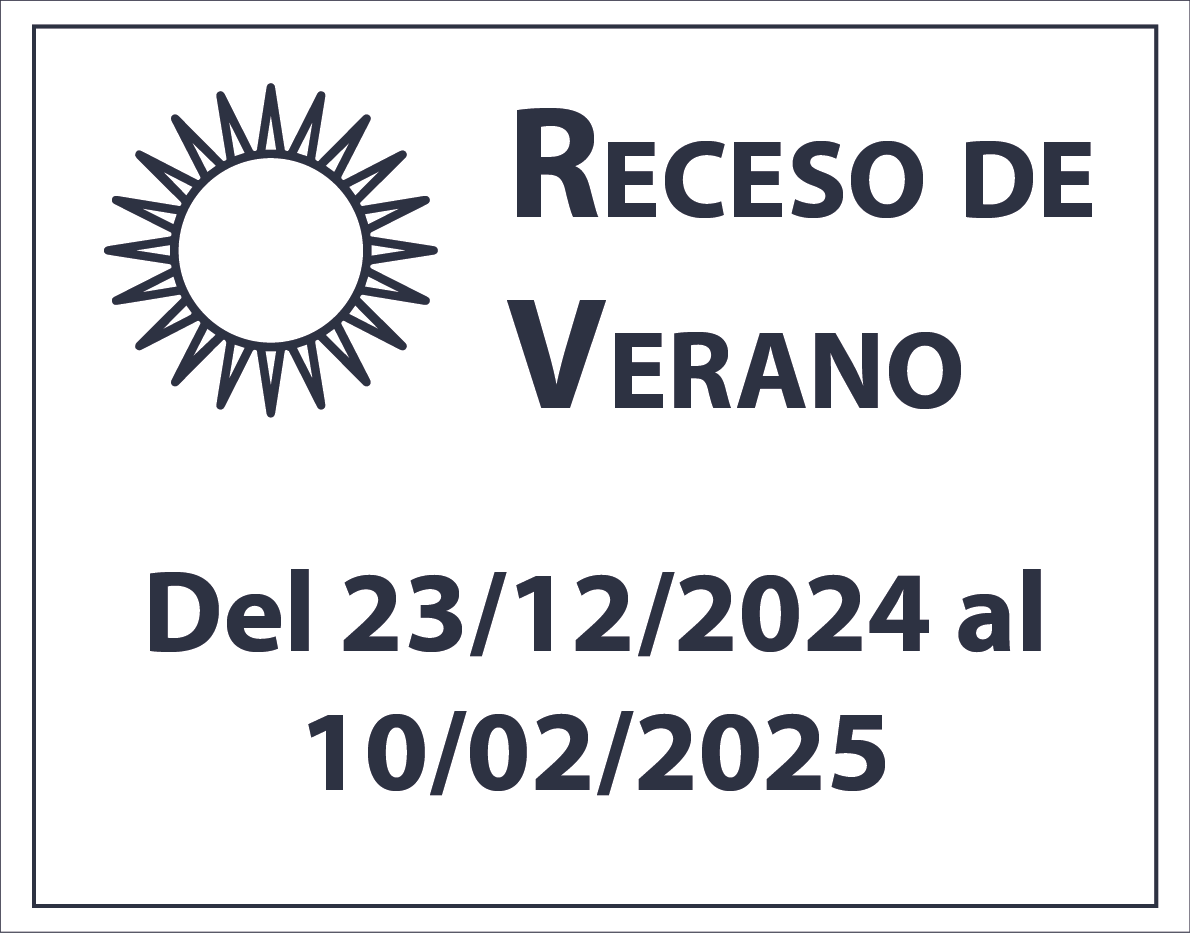Different scenarios in land suitability assessment for Kernza®-intermediate wheatgrass (Thinopyrum Intermedium), a novel perennial grain crop for Argentina
DOI:
https://doi.org/10.48162/rev.39.136Palabras clave:
evaluación de tierras, escenarios climáticos, degradación de tierras, cultivos de granos perennesResumen

Land degradation, climate change, soil and water contamination have led to increased interest in sustainable agricultural practices. Most agricultural practices are focused on growing annual crops, which require significant amounts of synthetic fertilizers, contribute to CO2 emissions and disrupt natural biological processes. Natural Systems Agriculture has been developed to reverse this paradigm by imitating nature through perennial grain crops. Kernza® intermediate wheatgrass (Thinopyrum Intermedium) is a promising perennial crop producing healthy grain for direct human consumption and forage for livestock while providing multiple ecosystemic services. Given these reasons, consider its cultivation in Argentina is relevant. This research aimed to predict Kernza crop suitability in the Azul district by modeling different climatic and soil densification scenarios. The model showed that Kernza can be grown in Azul, and that southern areas were most suitable. This model allowed generating information for land use planners and farmers to consider planting in Argentina, particularly, in Azul.
Highlights:
- Kernza can be grown in Azul district, especially in the deep, loamy soils of the southern areas.
- The P50% precipitation scenario was found to be the most suitable for Kernza cultivation.
- Considering different soil densification scenarios is crucial, as they affect water availability and water logging.
- Kernza offers valuable ecosystem services and holds promise for land use planners and farmers in Azul and Argentina.

Descargas
Publicado
Número
Sección
Licencia
Derechos de autor 2018 Revista de la Facultad de Ciencias Agrarias UNCuyo

Esta obra está bajo una licencia internacional Creative Commons Reconocimiento-NoComercial-CompartirIgual 3.0.
Aquellos autores/as que tengan publicaciones con esta revista, aceptan las Políticas Editoriales.



